
Mary Callahan Erdoes, the chief executive of J.P. Morgan Asset Management, tops the Most Powerful Women in Finance ranking again this year. She keeps finding new frontiers to explore, as you'll read about in her profile.
Rounding out the top five are Abigail Johnson of Fidelity, Barbara Byrne of Barclays, Margaret Keane of Synchrony Financial and Marie Chandoha of Charles Schwab Investment Management.
Only three women are new to the ranking for 2017 and all three have CEO titles — Michelle Neal, Yie-Hsin Hung and Cary Grace.
Neal leads BNY Mellon Markets, which is one of the fastest-growing businesses at parent company BNY Mellon.
Hung, a longtime investment banker with Morgan Stanley, joined New York Life Investment Management in 2010 as head of alternative investments and, several promotions later, became CEO in 2015. She has grown the business by pursuing acquisitions of boutique asset managers in the United States and abroad and expanding the products it offers.
Grace oversees global retirement and investment solutions at Aon, an operation that brings in billions of dollars in revenue for one of the world's largest financial services firms. Last year, the retirement solutions group became an externally reported business, a shift that Grace managed, while also achieving noteworthy 3% growth in organic revenue.
Keep going to see all of the 2017 Most Powerful Women in Finance, find out who ranks where and get a short overview of their recent achievements.
Make sure to check out this year's other rankings:
•
•

1. Mary Callahan Erdoes
Mary Callahan Erdoes keeps finding new frontiers to explore.
Her latest geographic frontier is China, where last year the JPMorgan Chase unit that she leads became the first wholly foreign-owned asset management operation in Shanghai's free trade zone.
Major U.S. banks have long sought access to the fast-growing Chinese market, but their ambitions were circumscribed by government restrictions on foreign ownership of financial services firms. In many instances, JPMorgan Chase's operations in China remain limited to minority-owned joint ventures.
The free trade zone in Shanghai, a four-year-old pilot project, gives the New York-based banking giant a rare chance to go it alone in mainland China. It allows the asset management unit to sign up wealthy Chinese clients, as well as to develop deeper insights about Chinese companies that can be shared with investors in other countries.
"China is one of the most important regions for us in the world," Erdoes, who is a board member of the U.S.-China Business Council, said in a recent interview.
In a sign of China's significance to the $2.6 trillion-asset bank, the J.P. Morgan International Council, whose members includes luminaries such as Tony Blair and Henry Kissinger, will have its annual meeting there later this year.
Erdoes said ultrawealthy investors in China tend to be younger than in other part of the globe, which heightens their expectations for the technology they use. "The billionaires in most of the parts of the world, the average age is in the 50s, 60s and 70s, whereas the billionaires in China are in their 30s and 40s," she said.
Evolving demographic trends, in China and elsewhere, are a key factor in another frontier Erdoes is pushing: the digitization of wealth management services.
Last year, JPMorgan Chase committed to spend $300 million over three years on digital enhancements in her business. In September 2016, the company formed a strategic alliance with InvestCloud, in an effort to accelerate the development of new digital capabilities for individual investors.
Erdoes, who joined the nation's largest bank by assets in 1996 and moved into her current role in 2009, is trying to balance the demands of the most sophisticated, digital-savvy clients with the needs of those who just want a simple way to execute online trading. "You have to basically cover the full gamut," she said. "For us, the design and flow of it all is of critical importance."
The U.S. wealth management industry is being influenced by a new breed of robo-advisory firms, including Betterment and Wealthfront. Those automated, self-directed services often appeal to young investors whose financial lives are still relatively simple.
But as people accumulate wealth and make more sophisticated financial decisions, JPMorgan Chase still holds the upper hand, Erdoes said.
"I can't imagine there are clients in the world that will only want one thing from now until eternity," she said. "A lot of these monoline offerings from different firms are interesting but incomplete, because you will grow and need different things."
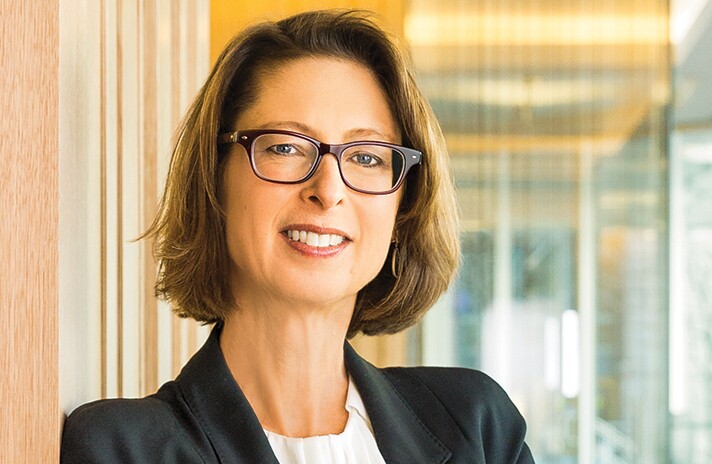
2. Abigail Johnson
Amid continuing predictions about the demise of conventional money management, the person in charge of the industry's best-known brand is making adjustments to keep the business thriving and prove the doomsayers wrong.
She also is thinking about the future, advocating for the development of blockchain technology and experimenting with digital currency.
Abigail Johnson, who has been Fidelity's CEO since 2014, added the chairman title in November 2016, succeeding her father, Edward "Ned" Johnson, and stepping up to full control at the Boston-based company. Fidelity is the world's fourth-largest asset manager, with about $6 trillion in assets under administration.
Actively managed mutual funds like Fidelity's have fallen out of favor, while lower-cost, passively managed funds have become more popular. The company laid off hundreds of employees in July even after more than 1,500 others took voluntary buyouts — part of what Johnson has called "a new multiyear program to drive efficiency."
Even so, Fidelity has size in its favor. It holds a quarter of the market for corporate 401(k) plans and deals with about 20% of all investors in America in some way.
Though Johnson, 55, continues to keep a characteristically low profile, she attracted attention in May at the Consensus 2017 conference in New York, urging software developers, entrepreneurs and academics to work together to solve problems that are preventing the broader adoption of blockchain technology.
"You are the community who will drive the future of this technology. I challenge you to start collaborating together — and I don't just mean with people that think like you," she said.
Making good on the technological leap, Fidelity in August started enabling customers to view their cryptocurrency holdings on its website.

3. Barbara Byrne
A formative moment of Barbara Byrne's nearly four-decade career in investment banking came during a one-on-one meeting with the legendary Lewis Glucksman of Lehman Brothers.
They were discussing a security Byrne had done without consulting others at the firm who actually traded that type of security.
As the analysis ended, Glucksman took out a pencil and snapped it in two, saying, "This is you."
He then picked up a large number of pencils, trying but failing to break them. "See this group?" Byrne remembers Glucksman saying, "This is our team. You can't break a team."
Byrne describes Glucksman's words as some of the best insight she has ever been offered, and she has spent her career trying to assemble the strongest possible teams and making sure each member of those teams has a voice. A big part of that is what she calls "diversity of thought," bringing together people of different genders, backgrounds, educations and ages in hopes of finding new perspectives.
"Diversity of thought is the source of creativity; it's the source of innovation," Byrne said. "Our job is to deliver the best of who we are."
With that in mind, she recently drafted both a septuagenarian and a 19-year-old intern to be part of a team charged with tackling a complex problem, as a way to apply experience and a jolt of fresh ideas.
Byrne is one of the public faces of Barclays, serving as one of its five official delegates at the Davos World Economic Forum, where she was a panelist at a session on shaping the future of gender equality.
Inside Barclays she has leading roles in groups such as the Social Innovation Facility, which is attempting to develop commercial solutions that address societal challenges. The company last year launched its Barclays Impact Series, which puts the expertise of its research department to task exploring the social impact of economic, demographic and disruptive changes affecting markets and society at large.
Byrne is particularly proud to be one of the guiding forces inside Barclays as it seeks out ways to positively impact its communities, a trend she sees as accelerating rapidly as millennials continue to enter the workforce. "What's good for business can be good for the community as well," she said. "The power of 'we' is so important. A strong team pushing in the same direction can have incredible results."
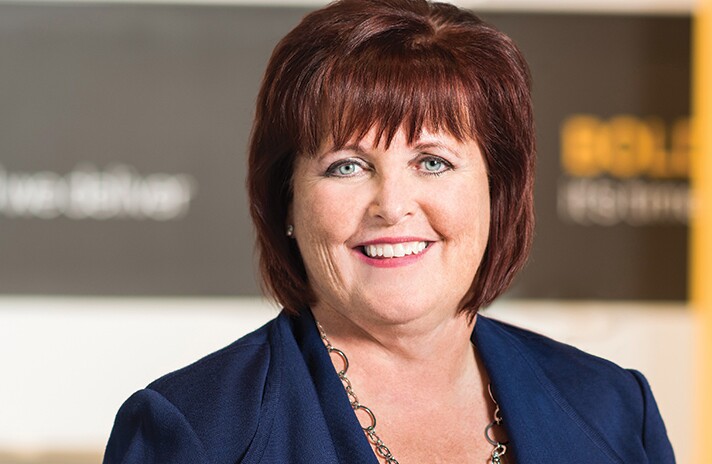
4. Margaret Keane
Margaret Keane spent the last few years transitioning Synchrony Financial from a wholly owned unit of General Electric into a publicly traded stand-alone company. Her more recent efforts have focused on what its next 80 years will look like.
Facing rapid change in the private-label credit card landscape, Keane is pushing Synchrony to be more innovative and to develop new digital capabilities to help retail partners.
Keane assembled 84 employees ranging from senior leaders to recent college graduates spread across the company's functions and work sites, then divided them into 14 teams tasked with finding solutions to specific business problems. The ideas generated by these teams will be assessed as part of Synchrony's annual planning process.
Artificial intelligence is an area of particular interest for Keane, who sees the technology as potentially improving the company's ability to detect fraud, predict customer behavior and provide better service at its call centers. It is also an area where Synchrony can potentially show its value to partners, improving logistics, optimizing store inventory and helping to make smarter recommendations to customers.
"Synchrony needs to be a pioneer in AI, not only for its own business, but also for its partners and their customers," Keane said.
Having a diverse workforce that can draw from various experiences and backgrounds is a big part of Keane's plan to push Synchrony forward. When Synchrony was formed as a stand-alone company, it established seven diversity networks.
Synchrony's women's network is more than 4,300 strong, with initiatives that offer members a chance to demonstrate their leadership skills and learn from one another.
Last year the network established a job-shadowing program at company headquarters, as a way for employees to learn more about potential career paths. It included a job fair-type event, where executives gave overviews of their departments, then went about their jobs with the employees tagging along.
The company called the initial program a success, and intends to repeat it across the entire enterprise this year.

5. Marie Chandoha
Charles Schwab was founded to reinvent investing and open up Wall Street to the masses. Marie Chandoha has embraced that mission, using her role at Schwab to continue to make the financial services industry more open to all.
Charles Schwab Investment Management, in a series of announcements over the past year, launched the lowest-cost target date funds in the industry and broke with industry norms by making those lower fees available to all investors regardless of the size of their portfolios. It also has aligned expenses on index mutual funds and ETF equivalents, allowing customers more flexibility, and has eliminated investment minimums on index mutual funds.
The changes have been good for business, as the investment management unit achieved record quarterly net flows of $7.8 billion into its index products in the first quarter of 2017. Its assets under management have grown to $315 billion as of March 31, from $280.2 billion at the end of 2015.
The changes also reflect Chandoha's desire to challenge the status quo in the industry. In addition to trying to attract more investors, she has championed diversity and encouraged her employees to do the same. One of her direct reports serves as the executive sponsor of the Schwab Organization of Latinos, another co-leads the Schwab Women's Network in Denver, and others initiated the development of the Denver Chapter of Women in ETFs.

6. Diane Offereins
For as much as technology has madelife easier for consumers, it has added layers of complexity for retailers and payment networks.
It is Diane Offereins' job to navigate that complexity and make sure Discover is keeping up with the latest advances. And the pressure is on to be adaptable, as new generations of phones, tablets and wearables facilitate commerce anywhere and anytime.
"The digital environment has raised the bar and customers now expect simplicity, immediacy and relevance every time they shop," Offereins said.
To that end, Discover has teams exploring new ways mobile technology can be used in the payment process. The company also must focus on security and recently rolled out Discover Verify, which matches customer information with data on file to help a retailer to decide whether to approve a purchase.
In addition to dealing with an evolving tech landscape, Offereins continues to pursue opportunities globally. Discover last year struck an agreement with the Brazilian credit card brand Elo to use the Discover network when its customers make purchases online from a merchant in another country or while traveling abroad. Brazilians spent $17.3 billion in 2015 while traveling internationally and more than $18 billion in cross border e-commerce.
Offereins manages relationships with the 1,000 largest U.S. merchants, the more than 3,300 financial institutions that issue debt cards on the Pulse network and 90 Diners Club International licensees, spanning 185 countries and territories. She also is a member of Discover's executive committee.

7. Charlotte McLaughlin
Charlotte McLaughlin has seen women make tremendous strides over her 40-year career in the financial services industry, but she remains frustrated by the lack of gender equality in top positions.
That's why McLaughlin has joined the 30% Club, an organization of top executives that is pushing for more women on boards and in senior leadership roles. One of its goals is for women to make up at least 30% of S&P 500 boards by 2020, up from 19% today.
The lack of women in C-suite roles is a particular problem, McLaughlin said, because it's in these highly visible jobs where women can be the most effective role models and sponsors of young talent.
She's also concerned about the number of women leaving the workforce midcareer and wants to see more employers show flexibility when dealing with those at a career inflection point — usually about four to seven years in. It is at that point when employees are past the initial learning curve and the most promising ones are being developed for promotion.
"For women it can be a challenging period to navigate and, at the same time, this inflection point often includes a myriad of personal and family changes," McLaughlin said. Though younger workers increasingly are demanding more flexibility, "acceptance of these concepts is still lacking, due to prevailing attitudes and culture."
McLaughlin believes it is at this stage where women are less likely to receive the first critical promotion and take those first steps toward leadership. For that reason she tries to work with high performers to help drive their careers forward by directing them to roles that have a direct path to senior leadership.
She also advises younger women to have the courage to speak up when necessary, even if what they have to say might go against the status quo.
McLaughlin admits that early in her career she invested a lot of time in being liked.
"It took me a while to understand that being respected and getting the job done are what really brings the team together and both are critical qualities required to lead a business," McLaughlin said. "Gaining the support of my colleagues by instilling confidence that I will lead the team to success, even if it involves making uncomfortable or unpopular moves, builds a sense of authenticity and a stronger team."

8. Candace Browning
In a world where information overload is a constant threat to good decision-making and can leave even the most decisive investor mired a paralyzing morass of numbers, Candace Browning's focus is turning mind-numbing reams of data into actionable intelligence.
Browning heads global research for Bank of America, with a team of more than 600 analysts in more than 20 countries. They follow 3,100 stocks and 1,150 credits globally, and provide economic forecasts for 56 countries, 36 commodities and 47 currencies.
Attesting to the quality of that research, Institutional Investor magazine recognized the bank as the top global research firm for the sixth consecutive year in 2016. That award goes on the shelf next to similar accolades for its work in various investment sectors.
Browning's role as a gatekeeper for investments in emerging financial technology also helps keep the bank on the cutting edge of innovation. She was instrumental in rolling out data tools that facilitated projects like identifying failing counterparties.
One area of interest is the nascent field of "artificial reality," which she expects to lead to new interactive tools for both the bank and its clients. A video her team did highlighting the potential opportunities of virtual reality for businesses and investors had 24,000 views on the bank's website and got even more attention on Twitter (250,000 "engagements," such as retweets and likes).
The use of technology in Browning's operation isn't just outward-facing. She also has overseen an effort to turn some of her team's expertise at data analysis inward, particularly with a view to promoting gender equality within the bank.
"I feel that women in financial services have made progress over the last five years and am encouraged that more institutions are actively tracking metrics and creating goals related to women and gender equality," Browning said.
In her department, she requires that at least two women be considered for every open position. The idea came from a Harvard Business School study showing that women had a significantly higher chance of being hired when at least two females were considered for a role — their odds were 79 times greater. "The research suggests that we can use bias in favor of the status quo to actually change the status quo," Browning said.
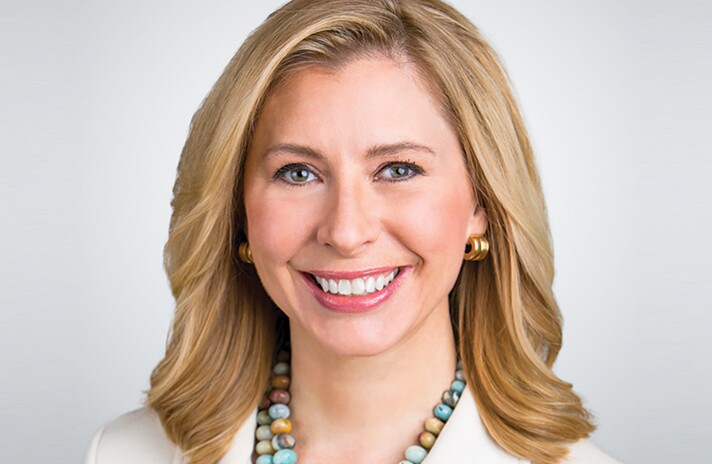
9. Rebecca Patterson
Even for someone as accomplished as Rebecca Patterson, there are times when a little encouragement is helpful. That's why she keeps a book of quotations from Eleanor Roosevelt by her bedside.
"Here is a woman who was an unusual first lady at an extraordinarily challenging time for the country and world, who had an unusual marriage, and who grew up unconventionally," said Patterson, who is the chief investment officer at Bessemer Trust. "To me, she embodied resilience. Whenever I have a tough day, I read a few of her quotes and feel inspired anew."
One of her favorites: "Women are like tea bags. You don't know how strong they are until you put them in hot water."
There isn't much question about Patterson's strength. As the first woman to rise to such a senior position in the history of her 110-year-old company, Patterson has proved herself many times over managing an 87-person team that guides the investment strategies for $60 billion in client portfolios.
Patterson also makes a point of mentoring other women in finance and, more broadly, helping to push for greater diversity in the senior ranks. As an in-demand speaker as well as a member of high-profile international organizations such as the Council on Foreign Relations, Patterson is in a unique position to serve as a role model to younger women in the industry.
Patterson has no illusions about the difficulty that some women face in finance, where many companies still harbor a "boys' club" ethos. She advises "candid conversations" to deal with an internal culture that needs updating.
That might seem like it is easier said than done, but Patterson said women in finance tend to be able to stand up for themselves effectively.
"I think most women in finance build resilience over time, if nothing else because it's a demanding, intense field," she said. And when they need a boost, there's always Eleanor Roosevelt.

10. Joyce Chang
Robots won't be taking the jobs of investment bank research analysts anytime soon, but Joyce Chang sees a future in which the combination of artificial intelligence, big data and machine learning fundamentally transform the kind of information investors use to make decisions.
Chang has pushed hard for the investment banking unit of JPMorgan Chase to invest in AI and big data strategies. She established its "Quant Council" and led the development of a new 300-page primer on the changes that technology will impose on investors — whether they realize it or not.
"Analysts, portfolio managers, traders and CIOs will eventually have to become familiar with big data and machine learning approaches to investing," said Chang, who oversees 950 analysts around the world covering more than 3,700 companies. "This applies to both fundamental and quantitative investors, and is true across all asset classes."
Returns will suffer for investors who fail to adapt, she said. "As more investors adopt alternative datasets, the market will start reacting faster and will increasingly anticipate traditional or 'old' data sources." Quarterly earnings reports and macro data from the government will lose their predictive value, once the use of big data becomes standard, she said.
That doesn't mean traditional research will lose its place in investing. In fact, the sheer volume of data bombarding investors these days makes the job of analysts more important, Chang argued. "With 80% of the data in the world created in the last two years, judgment matters more than ever," she said. "Technology is a complement to sound judgment and knowledge, not a substitute."

11. Katia Bouazza
Katia Bouazza prides herself on knowing when it's time to mess with a good thing.
As HSBC's head of global corporate banking, investment banking and capital financing for Latin America, Bouazza is all about change, even when others may not have seen the need for it yet.
"I don't subscribe to the adage, 'If it ain't broke, don't fix it,'" she said. "Too often, that's an excuse to maintain the status quo. I've learned that a key ingredient of success as a leader is to focus on both the short term and the long term. While managers focus on the problems right in front of them, to be a leader you must be able to see around corners."
That's one of the reasons why, when Bouazza took over HSBC's operations in Latin America, she decided that it was time to "shake up" its leadership in key business lines and implement significant changes in governance.
"It was a decision based not on addressing an immediate need, because in fact our Latin America business is well positioned, and has successfully served our clients through a politically turbulent period in the region," she said. "I did it to ensure we stay strong in the years ahead, and to be positioned to respond to future market challenges."
One of the leadership changes under Bouazza is particularly notable. She advocated for Monica Duwe to become CEO of HSBC Chile — and, with that appointment, made her the first woman to run a major bank in that country's history.
Bouazza also was instrumental in gaining market acceptance for a first-of-its-kind emerging market green bond issued by the Mexico City Airport. With HSBC acting as the sole green structuring adviser, the deal made history on multiple fronts. It was the largest green bond to date from a Latin American issuer, the first green bond used to fund an airport's construction and the first green bond from an emerging market issuer to earn Moody's Green Bond Assessment grade.
"Leaders need to be able navigate challenges and changing times — for themselves but also for their teams and for their clients," Bouazza said.
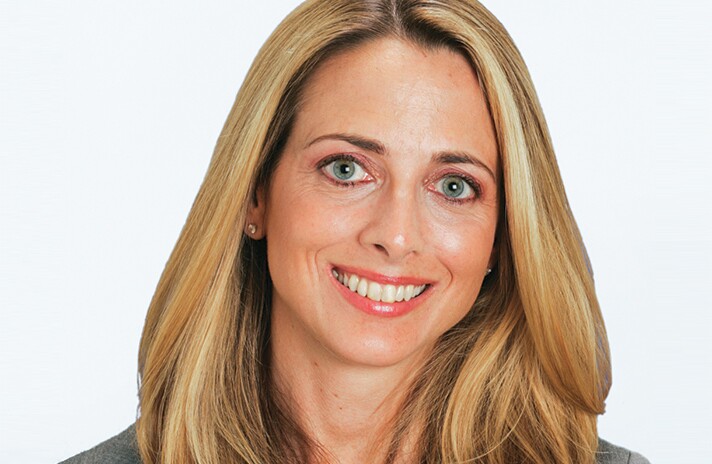
12. Julie Monaco
Part of Julie Monaco's role at Citigroup is to understand the worries of governments and central banks around the world. As head of public sector coverage for the corporate and investment bank, she is a fixture at events like the annual World Economic Forum at Davos and meetings of the World Bank Group and International Monetary Fund.
Over the past several years, a frequent complaint from Monaco's clients has been about the challenges of dealing with corruption, which destroys the public's faith in government and makes the daily operations of the public sector more expensive for taxpayers.
With her international team of experts advising more than 700 clients around the world on everything from public debt offerings to best practices for implementing new financial services technology, Monaco saw an opportunity to effect change. In particular, she understood that helping developing countries use technology to increase transparency in public finance could make it much more difficult to disguise corruption.
To that end, she helped organize Citi's Tech for Integrity Challenge, called "T4I" for short. The cooperative effort pulled in 200 colleagues and 11 business units at Citi as well as 80 outside participants, including governments, regulators and Fortune 500 companies. The object is to develop systems that track beneficiary eligibility, tax administration, transparency in the procurement process, allocation of public funds and more, in an effort to fight corruption.
Monaco, who describes T4I as "a global open innovation competition," said she expects it will lead to technology solutions that benefit "a huge number of people" worldwide.
Fitting these efforts, Monaco also retains oversight for the know-your-customer and anti-money-laundering operations at the corporate and investment banking unit.
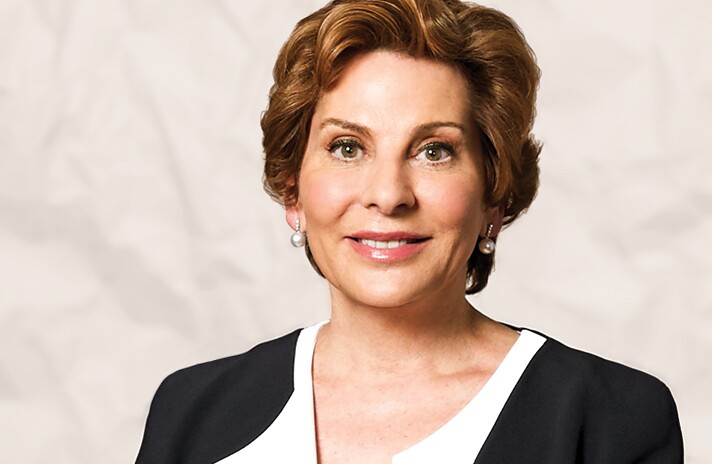
13. Diane Schumaker-Krieg
Diane Schumaker-Krieg knows firsthand that fear can lead to innovation — and, for her, the beginning of a career in research.
Thirty years ago, Schumaker-Krieg was working as an associate on the equity syndicate desk at the New York investment firm Dillon Read. She was a single mother of a 6-year-old son at the time, making the salary of an early-career associate.
After the Black Monday stock market crash in October 1987, Schumaker Krieg lost her job, along with thousands of other Wall Street investment bankers. She was already coming off of a year without bonus pay. She had to think fast to keep her family on solid financial ground.
"People talk a lot about motivation, and I can tell you that fear is a tremendous motivator," she said.
After 24 hours of what Schumaker-Krieg describes as "sheer panic," she came up with an idea. She called the president of Dillon Read with a proposal: If the company hired her back at her base salary, she would develop a profitable new research subscription business.
Schumaker-Krieg even drafted a contract with ultimatums. If she didn't bring in at least $2 million in revenue after the first year, and $5 million after the second year, he should fire her.
Her first client was James Wolfensohn, the former president of the World Bank who at the time ran an investment firm in New York. She won his business by cold-calling his office.
"He picked up the phone thinking it was his car service — and I wouldn't let him off until he bought an $80,000 subscription," she said.
It marked the start of her career in equity research. Her business at Dillon Read grew, and Schumaker-Krieg was eventually approached with a takeover offer from Credit Suisse First Boston, which bought her division. She later joined Wachovia Securities, which was sold to Wells Fargo during the crisis.
"Sometimes I try to keep that fear in mind," Schumaker-Krieg said, recalling that can't-fail-now urgency she had when she lost her job.
"It's good to have that mindset, even when you're confronting situations that are difficult but are not life or death. To me, that was life or death."

14. Kelly Coffey
Sometimes speaking up can be intimidating, but Kelly Coffey did not want to lose out on the valuable insight that others might be reluctant to share. So she set about making it easier for employees at all levels to reach out to her.
"I think that one of the things that's most important to do in business is listen," said Coffey, CEO of the U.S. Private Bank at JPMorgan Chase. "Everybody who works for me, who's doing everything from wiring money for a client to designing a new estate plan, they're doing the business every single day and they're the most valuable resource we have to figure out how to do things better."
The problem, she said, is that despite a travel schedule that takes her around the country to meet with many of the private bank's 2,700 employees on a regular basis, "sometimes people sitting in front of me don't want to tell me specifically what's wrong."
Whether it's discomfort raising an issue during a meeting, or a worry that maybe a particular problem doesn't rise to the level of the CEO, Coffey found that employees were holding back rather than sharing concerns so that they then could be resolved to everyone's benefit.
To overcome that resistance, Coffey has taken steps to encourage more feedback from her team.
One of her most effective tactics is also relatively simple. Coffey set up an email account called "Tell Kelly" and encouraged employees to send her their thoughts. "Any problem, large or small, that you see, just send off an email," she told them.
Coffey said the information she has gotten through this process is helpful in many ways, resulting in smoother, more customer-friendly processes and resolving management issues before they could become more serious.
None of the emails ever go unread, she added. "We go through every single one get back to every person."
Among the greatest benefits is assuring that many voices, which she might not otherwise hear, are able to get her attention.
"In wealth management in particular, our clients are all sorts who have made their money very different ways and come from many different walks of life," she said. "Having a wide range of voices and perspectives within the bank itself — and making sure they get heard — is vital.

15. Yie-Hsin Hung
New York Life, the nation's largest and oldest mutual life insurance company, is quietly emerging as a global force in asset management.
Over the last six years, the company has roughly tripled its third-party assets under management, to more than $300 billion, and climbed five spots in the rankings of the world's largest asset managers, to No. 24.
Credit Yie-Hsin Hung, the CEO of New York Life Investment Management, which accounts for roughly two-thirds of parent company New York Life's assets under management.
Hung, a longtime investment banker with Morgan Stanley, joined New York Life Investment Management in 2010 as head of alternative investments and, after several promotions, was named CEO in 2015.
She has grown the business by pursuing acquisitions of boutique asset managers in the United States and abroad and expanding the products it offers. The purchases of IndexIQ and Credit Value Partners have added exchange-traded funds and distressed debt to its U.S. investment options. Meanwhile, purchases of asset managers in Europe and Australia, along with continued expansion in Asia, are big reasons nearly half of all its assets are now managed overseas, compared with just 8% a few years ago.
Hung said that the company needed to diversify if it hoped to continue providing meaningful returns to its customers — New York Life policyholders — in what has been prolonged low-interest environment. "Emerging markets are fast-growing. Europe is the world's second-largest asset management market. I felt that by not having a presence outside of the U.S. we were missing out on a significant opportunity," she said.
Policyholders certainly appreciate her efforts. Earlier this year, New York Life's board approved a total dividend payout of $1.77 billion, the highest in the insurer's 172-year history.
As the asset management business has grown, so too has Hung's stature at New York Life. She is now the highest-ranking woman at the company and earlier this year was named to its 12-person executive management committee.
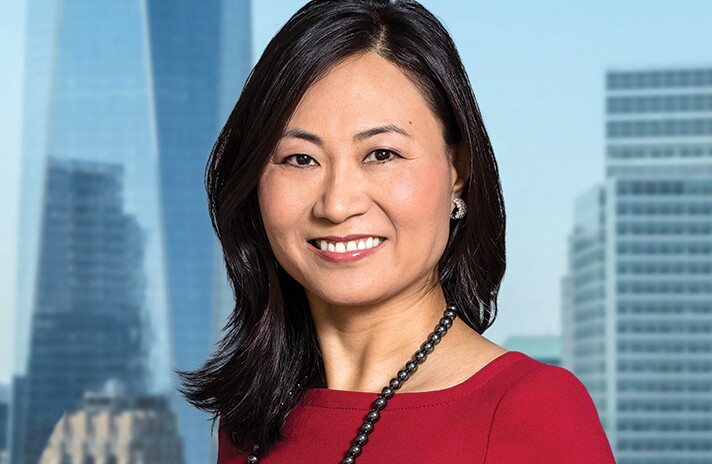
16. Elinor Hoover
The market Elinor Hoover is charged with helping Citigroup and its worldwide customer base navigate is in major flux. Though massive conglomerates dominate consumer products, 70% of the fastest-growing brands are independently owned operations.
As part of an effort to make sense of the shifting market, last year she pressed Citi to launch a major investment banking advisory initiative to expand coverage of the new players exploding into the marketplace.
Against that backdrop, Hoover, the global co-head of Citi's consumer products division, finds the pace of change for women in financial services to be extraordinarily slow.
"If you look at the numbers in financial services among the bulge bracket firms, there doesn't appear to have been a significant change in the number of women, particularly at the C-suite or executive leadership level," she said.
For companies doing business with the consumer products sector, the lack of women in top leadership marks a sharp contrast with the clients they are serving. "In the context of these emerging growth consumer companies, and certainly the consumer products sector as a whole, there are a fair number of women in key decision-making roles," she said. "This strength of female executive leadership exists nearly across the board."
At Citi, Hoover is working to improve the gender balance, and last year initiated an effort that helped double the percentage of women in its entry analyst class compared with 2015.
"I pushed to establish a formal review process to re-evaluate female candidates who made it to the final interview round, but did not ultimately receive an offer," she said. "Through this new committee process, we began to routinely review, re-interview and re-evaluate highly qualified female candidates who might otherwise have not been afforded a spot in Citi's analyst program. And incredibly, nearly all of the reviews resulted in offers!"

17. Liz Myers
Sometimes you just need to get the lawyers out of the room and let people talk. That's the conclusion that Liz Myers came to while putting together a new training program for J.P. Morgan.
The program, which rolled out to all investment banking employees last year, focuses on culture and conduct. It gives the staff a chance to hear senior managers share actual business challenges and sometimes failures that they have experienced. "Control partners" — read: lawyers and compliance officers — are specifically barred from the sessions to allow for an open discussion of what works and what doesn't.
The program has been so effective that the JPMorgan Chase unit now considers it a best practice for training and is implementing it for employees working in other areas.
The training is part of a broader effort spearheaded by Myers to strengthen the corporate culture at the investment bank. That effort includes a new set of culture and conduct metrics meant to reinforce four core principles: client service, operational excellence, integrity and teamwork. "Instilling the right principles across an organization must be a proactive effort," Myers said.
The strength of the corporate culture helped Myers' equity capital markets group maintain its dominant position, continuing an eight-year run of leading the industry in key metrics such as number of deals, fees generated and year-over-year increase in fees earned.
Myers is a strong believer in developing new talent, and often that means giving people responsibilities for which they may not be entirely ready. "It is far too difficult to judge what a person 'may' do if given authority," she said. "It is a more accurate assessment to delegate responsibility and promptly use their actions as the litmus test."
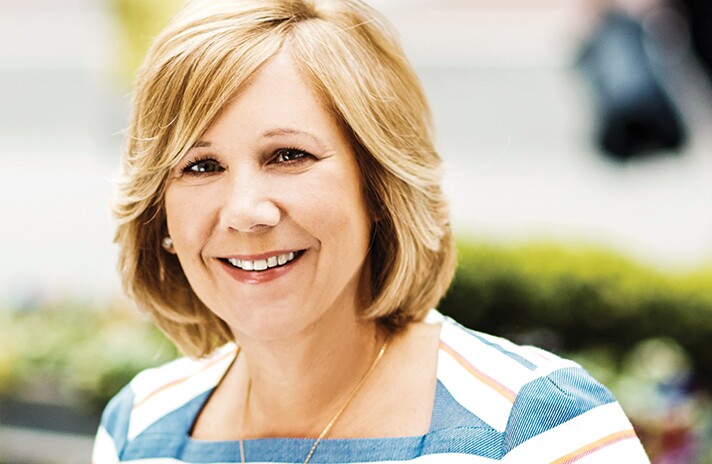
18. Kathie Andrade
Fresh off helping lead TIAA's $2.5 billion purchase of Jacksonville, Fla.-based EverBank, Kathie Andrade took on another ambitious project this year.
She contributed to the development of TIAA Personal Portfolio, a professionally managed online account that launched in June. This hybrid robo-adviser is intended to appeal to the growing millennial customer base.
It is also expected to contribute to an upward trajectory that saw TIAA's retail business notch a 3% increase in assets under management last year. Since 2010, when Andrade took over as president of the company's Individual Advisory Services, a role she held until early 2016, assets under managment have increased nearly 140%.
"Year after year, Kathie has shown that she is a transformational leader who drives positive change, meets her commitments, and delivers results," said Roger W. Ferguson Jr., TIAA's president and CEO.
That vote of confidence is reflected in Andrade's assignment to TIAA's executive management team, making her one of only five leaders responsible for setting the long-term vision of the company. Andrade added another title in June, officially assuming the role of chairman of the board for the banking unit created with the EverBank acquisition.
Andrade has been a leader in TIAA's efforts to expand opportunities for women as well. She helped create its Woman2Woman program, which includes an online community where female employees connect, share success stories and open up about their challenges.
Creating a network of women to help each other is a logical focus for Andrade, who said she benefits from these relationships just as much as the younger women she advises.
She also enjoys this type of mutual exchange with her children. "I define myself as a mother first," said Andrade, who has two daughters in their 20s and an 18-year-old son in college. "Over the years, I've learned a lot of important lessons from my own children, and I can confidently say that I'm a better person because of them."

19. Tracey Brophy Warson
The road that brought Tracey Brophy Warson to her current job as head of Citi Private Bank in North America was never an obvious one. She spent nearly 20 years in sales and trading operations, and her move into private banking mostly just confused the people around her.
"Many perceived it as a lateral move," Warson conceded. "But, for me, it was an opportunity to challenge myself and expand the scope of my career."
Years later, one thing that has become obvious is the payoff that move had, for both Citi as an institution and for Warson herself. She now runs the largest segment of one of the world's largest private banking operations, overseeing offices across the continent that manage $191 billion in assets for ultra-high-net-worth individuals and families along with major law firms. Under her leadership, the North American region of Citi's private bank posted record revenue in 2016, up 14% from the previous year, and began 2017 with more record-breaking numbers in the first quarter.
Warson is also a strong advocate for gender and ethnic diversity. "Leading by example, my leadership team in North America is nearly 40% women, but taking into account gender, ethnic and other diversity, the leadership team is nearly two-thirds diverse," she said. Last year regions led by women accounted for 67% of the private bank's total sales revenue. Within North America, three of the top four regions are led by women.

20. Cary Grace
Even now, as CEO of global retirement and investment solutions at Aon, leading a team that serves clients with more than $4.2 trillion in assets, Cary Grace is incredulous at some of the things she encounters as a woman in the world of financial services.
She runs an operation that brings in billions of dollars in revenue for one of the world's largest financial services firms. Last year, among other projects, she oversaw the shift of Aon's retirement solutions group to an externally reported business — and still achieved noteworthy 3% growth in organic revenue.
But at the same time, she said, she has shown up at a past industry event to find, "the servers are all women in bikinis.'"
Then there's the frequent assumption, when fellow executives are assembling groups for golf outings, that as a woman she simply doesn't play the game, even though she does.
Grace said that she handles these incidents on a case-by-case basis, sometimes with humor and sometimes with a frank expression of unhappiness. But they are a constant reminder that although progress in gender equality has been real, the struggle isn't over.
"I have mixed feelings about where women stand today," she said. "After 28 years in the financial services industry, I would have hoped to see more progress than I have seen, particularly among women in the most senior ranks who are responsible for large P&Ls."
She singles out investment banking and asset management as areas where the most work is needed. "They have been the laggards in the industry since I first joined financial services in 1990 and, from my vantage point, that lag continues. There has been progress but not enough."
What gives her particular hope for the future, she said, is to see the energy that her 17-year-old daughter and her friends have displayed since the presidential election "as they try to ensure that they have an equal voice in all aspects of our business, civic and social communities. The irony for me is that the threat women have recently faced related to potentially going backwards on many fronts may end up being the catalyst that we need to re-energize the push for gender equality."
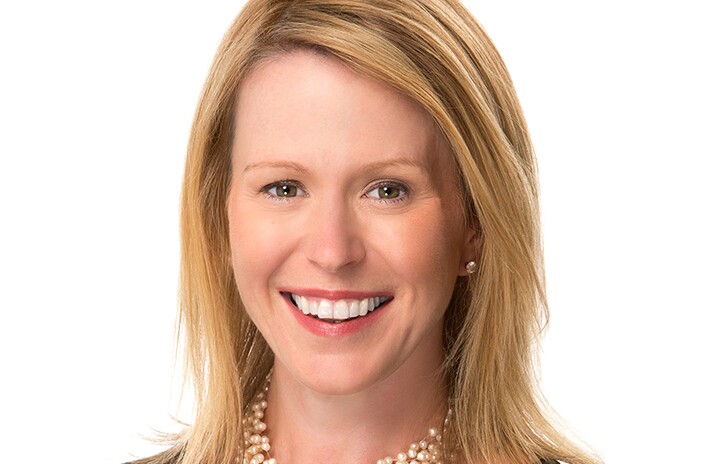
21. Michelle Neal
Being in the forefront of change is nothing new for Michelle Neal, who became president of BNY Mellon Markets in November 2015, when the group itself was little more than a year old.
Neal now has the CEO title for her unit, which is one of fastest-growing businesses at BNY Mellon. Upon getting that role in June, she also was appointed to the company's executive committee.
The role entails oversight of activities such as foreign exchange, securities finance, global collateral management and liquidity services.
Neal's first task when she arrived at BNY Mellon from Deutsche Bank was to set the strategic course for the markets business. The new role didn't seem like an "obvious fit" initially, but the match was in the type of leader needed, she said.
"I came to learn BNY Mellon was looking for a change agent with extensive experience running platform businesses," Neal said. "The company was looking for a leader to come in and run the markets business as a next-generation platform. I am doing that."
Among the changes she has introduced is the development of DBVX, a peer-to-peer collateral trading platform acquired by BNY Mellon in 2016. DBVX aims to bring collateral providers together with cash providers electronically.
Talent development is also a focus, and, Neal said, women especially are vital to BNY Mellon's growth.
"Many women are 'lost' from the industry at the vice president level," either because they encounter a dearth of opportunities or decide to have children, she said. "Some prefer to take more time off, putting them in a difficult position professionally, while those who want to stay involved in deals throughout their maternity leave may encounter certain barriers."
Neal said she has had success in helping women navigate these kinds of career obstacles. "Whenever I sense I can help, I step in."
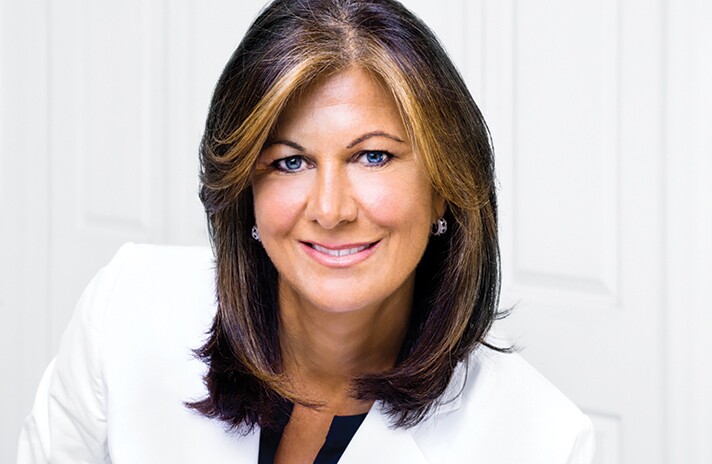
22. Paula Polito
Politics has been on just about everyone's mind, but it is also a minefield topic that many people in business were just as happy to avoid.
Not Paula Polito and her team at UBS. As the U.S. presidential campaign unfolded last year, clients of all political stripes were anxious about the impact of the election on their financial well-being. That anxiety led 30% of investors to raise cash and 25% to consider pulling out of the market.
Though UBS' investor surveys showed health care and national security were important issues, the No. 1 client concern was the economy. But many advisers were reluctant to talk to their clients about it because they didn't want to fire up political debates.
So Polito decided to launch a program to help advisers proactively engage in these conversations by focusing on the economy, not politics. The program, which included bipartisan research to identify investors' views, received a lot of media coverage.
Clients noticed and, UBS research indicates, they felt grateful and more positive about their financial condition, regardless of their political affiliation. Most importantly, the effort succeeded in making them comfortable enough to stay focused on long-term goals by remaining in the market.
"To me, the most important leadership quality is to take risks," Polito said. "I always say, 'You have to play to win. You can't play not to lose.' "
Polito, who leads 350 employees accountable for $160 billion in assets, has demonstrated her comfort with risk in more ways than one. UBS credits her with transforming its equity plan business, which ranked No. 1 among all stock plan providers in several key categories assessed by the independent research firm Group 5. Corporate plan sponsors often rely on the research from Group 5 to choose an equity plan provider.
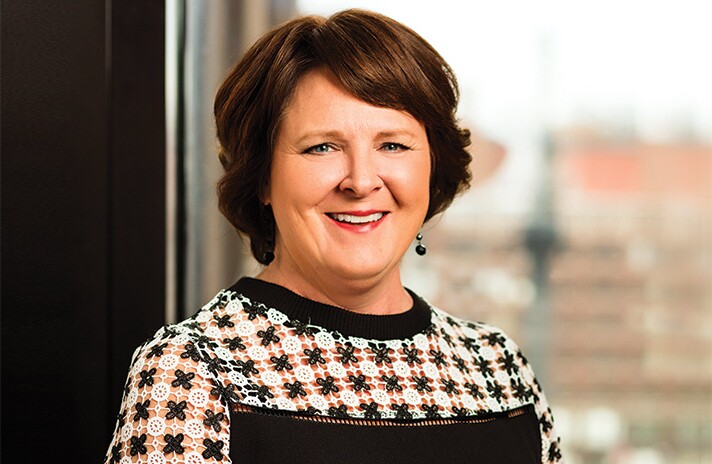
23. Amy Carlson
With market volatility at the beginning of the year, and the acquisition of First Niagara Financial Group completed at midyear, 2016 was especially busy for Amy Carlson.
Carlson is the top female executive at KeyBanc Capital Markets, the corporate and investment banking division of KeyCorp. The unit provides corporate banking, capital markets and advisory solutions to emerging and middle-market companies in a variety of industries.
The team led by Carlson — who has been in her current position since 2006 — includes more than 100 people who raised over $179 billion in debt capital for clients in 2016. The $179 million in revenue they delivered fell short of the record $198 million in 2015, but still outperformed every other year.
Carlson said that recruiting and retaining top-notch talent is crucial to the success of the business. She is involved in developing a recruiting program that targets young women seeking careers in investment banking. This year, KeyBanc welcomed about 30 women from universities across the country to participate in the two-day program, up 20% from last year.
In the effort to get more women into the senior ranks, having visible role models helps, and Carlson said she herself feels encouraged by KeyCorp's Chairman and CEO Beth Mooney. But the industry overall still struggles.
"I'm struck by the fact that there is much more to do in terms of women in 'top ranks,' " she said. "As you look at coming retirements as well, the need for continued efforts to attract, retain, mentor and sponsor women in our business is more critical than ever. Those efforts must be driven by women in our business, but joined in by men as well."

24. Fiona Bassett
Deutsche Bank had a lot to contend with last year — not that Fiona Bassett let that hamper her.
Germany's largest lender incurred some heavy fines and undertook a massive restructuring plan in 2016, on top of dealing with the same industry challenges of low interest rates and tougher banking regulation as others.
But Bassett's business at Deutsche Asset Management showed no such stress. Market share increased and its product range expanded, as she continued to transform what was essentially an ETF startup into a more full-service shop. By the end of 2016, the U.S. passive business had grown to $19 billion in assets under management, up from $1 billion at the start of 2014.
"Fiona's grit and exemplary leadership were truly tested in 2016, which was arguably one of the most tumultuous years for Deutsche Bank and our asset management business," said Nicolas Moreau, head of Deutsche Asset Management. Despite the clamor, he said, "Fiona managed to not only maintain, but successfully grow her business."
That growth included adding 11 people to her team from inside and outside the bank. And while questions about Deutsche's stability swirled, she was named "fund leader of the year" by Fund Action and Fund Directions in their annual Mutual Fund Industry Awards.
"I have taken risks throughout my career, and they have always paid dividends," Bassett said.
Involvement with women's issues is also important to Bassett, who is a founding sponsor of the asset management unit's Women's Leadership Initiative.
"Entry level in asset management starts with gender equality but then deteriorates, with the C-suite having amongst the lowest female representation across industries, so it's clear that we have a lot of work to do," she said.
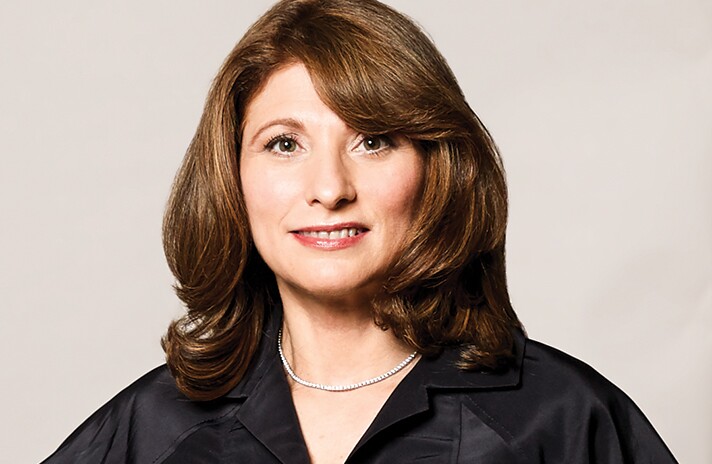
25. Claudine Gallagher
It took a lot of soul-searching, but BNP Paribas' Claudine Gallagher ultimately turned down a job with a rival custody bank last year because, she concluded, there's nothing quite like building a business from scratch.
BNP Paribas recruited Gallagher away from JPMorgan Chase's investment banking unit in 2012 to help it establish a securities services business in North America, and under her leadership the French banking giant had accumulated close to $270 million of assets under custody by mid-2016.
Then last summer Gallagher accepted an offer to run a key business line at another custody bank with a much larger U.S. presence — not her dream job, she admits, but one that offered significant opportunities for career advancement. But as Gallagher was winding down her tenure and watching her soon-to-be former team winning deals and adding new clients, she began to have second thoughts about leaving. The CEO of the securities services business, perhaps sensing that Gallagher was wavering, made a last-ditch effort to keep her and she agreed to stay.
"When you are starting a business from scratch, there are a lot of milestones and a lot of reasons to come together as a team to celebrate and bond," Gallagher said in explaining her change of heart. "We said when we started this business that it was going to be a 10-year investment and we are only midway through that. I want to see how it all turns out."
The custody business in North America is still dominated by competitors like Bank of New York Mellon and State Street, but Gallagher said that BNP Paribas is not trying to take them on directly. The goal instead is to become the custodian of choice for smaller asset managers and other financial intermediaries that might not be on the radar of the bigger banks.
"The large global custodians are our clients in Europe — they use us as subcustodians — so we are not here to compete with them directly," Gallagher said. "But we can be an alternative for those smaller-tiered clients."





